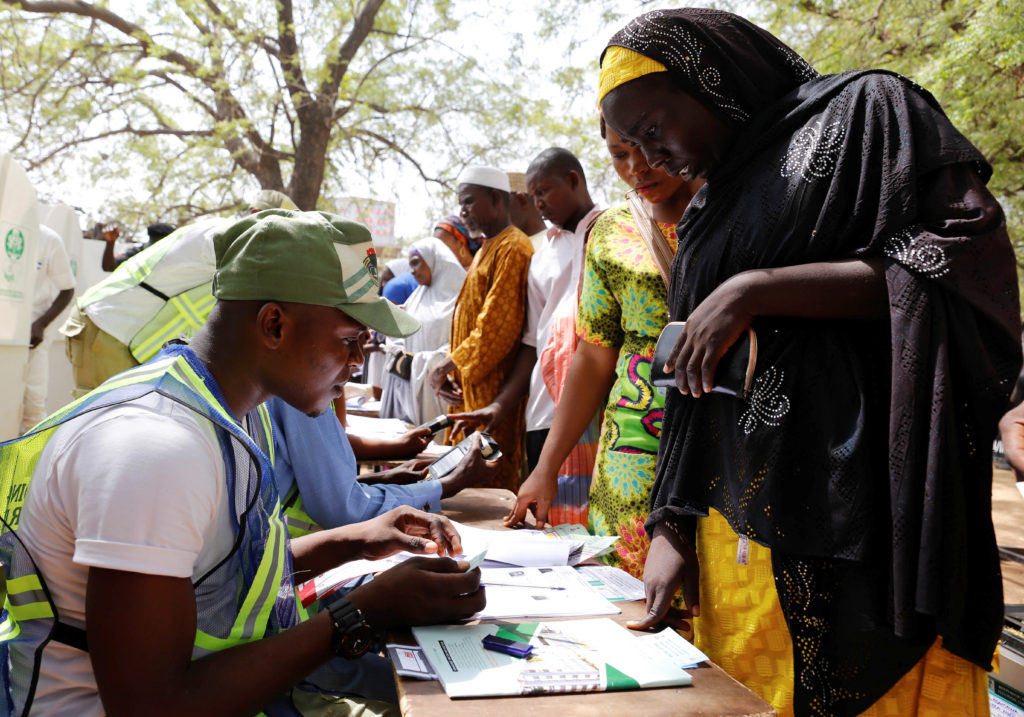By Kayode Adebiyi
The February 25th Presidential and National Assembly elections have come and gone, but there are issues around them which need to be addressed before the March 11 Governorship and House of Assembly elections. Perhaps the biggest talking point has been the electronic transmission of raw votes directly into the electoral umpire’s system.
Prior to the election, the Independent National Electoral Commission Chairman, Prof. Mahmood Yakubu, was on record to have promised that election results would be transmitted immediately and in real-time to the INEC Results Viewing Portal (IReV).
However, Yakubu later made an adjustment to how votes were to be transmitted, saying that raw election figures would not be transmitted electronically. Rather, the presiding officers would be required to use the Bimodal Voter Verification System (BVAS) to snap the election results on the results sheet from each polling unit and upload them on IReV. The INEC boss said that decision was made to reduce the possibility of hacking, which would have completely derailed the election process.
“After the process is completed at the polling unit, the image of the polling unit result will be taken by the BVAS and uploaded into what we call the INEC Result Viewing Portal, where citizens can see polling unit level results as the processes are completed at the polling unit level,” Yakubu said.
In his preliminary findings of the European Union Election Observation Mission (EU EOM) presented on February 27, EU EOM Chief Observer, Barry Andrew, noted that there were challenges with the electronic transmission of results.
“The introduction of the Bimodal Voter Accreditation System (BVAS) and the INEC Results Viewing Portal (IReV) were perceived as an important step to ensure the integrity and credibility of the elections. However, uploading of the results using the BVAS did not work as expected and presidential election result forms started to appear on the portal very late on election day, raising concerns.”
Similar concerns were also raised by other stakeholders, including the opposition Labour Party (LP) and the Peoples Democratic Party (PDP) which accused INEC of complicity in alleged malpractices during the polls.
Indeed, just like in previous elections, there were logistical issues, voter intimidation and electoral violence in parts of the country during the February 25 election. Also, following the success recorded during the conduct of off-cycle elections in Anambra, Ekiti and Osun, as well as the Area Council elections in the FCT, largely due to the new Electoral Act and introduction of technological innovation, the general public had high expectations and optimism.
While elections are not perfect anywhere in the world, it is safe to say that INEC did not manage public expectations very well. But then, judging by the outcome of the elections, the credibility of the results INEC announced is a fair reflection of how people voted on election day, irrespective of how they were transmitted.
The eventual winner of the presidential polls, Bola Ahmed Tinubu of the All Progressives Congress (APC), had 37 per cent of the votes, while PDP’s Atiku Abubakar polled 29 per cent. LP’s Peter Obi came third with 25 per cent of the votes. Each of the three candidates secured 12 states.
There were also some upsets, with Obi winning Lagos for instance and Atiku taking Katsina, an APC stronghold and President Muhammadu Buhari’s home state. In the FCT, Ireti Kingibe of LP defeated incumbent Phillip Aduda (PDP) in the race for the FCT Senate seat.
These are indications that, while the election may not have been hitch-free and INEC should have sought to better prevent disappointment by establishing in advance what can realistically be delivered and improved upon in the election, arguments around its lack of credibility have been blown out of proportion. And nothing depicted the attempt to throw the baby out with the bath water than former President Olusegun Obasanjo calling for the cancellation of the election even when counting was ongoing. Minister of Information Lai Muhammed may not be a model of truth, but he was spot-on in his reply to Obasanjo when he said the former president “organised perhaps the worst election since Nigeria’s return to democratic rule in 1999…”
The AU Election Observation Mission raised an important point in its preliminary report about how the current cash crisis may have affected INEC: “…the Mission noted that the timing of its implementation impacted on the economy as well as the logistical operations of INEC, the campaign process, the conduct of election observation, among others.”
Despite the challenge, it commended the commission on the transparency of the election process, saying, “Voting and counting took place in an open and transparent atmosphere in the presence of observers, party agents and media.”
No doubt, INEC needs to improve its performance come March 11 to restore public confidence in its ability to deliver credible, free and fair elections. Also, aggrieved parties should understand that an election cycle does not end at the declaration of results. Seeking redress in the election tribunal to the Court of Appeal and up to the Supreme Court in some cases is part of the process and they should channel their grievances accordingly.

 Join Daily Trust WhatsApp Community For Quick Access To News and Happenings Around You.
Join Daily Trust WhatsApp Community For Quick Access To News and Happenings Around You.


